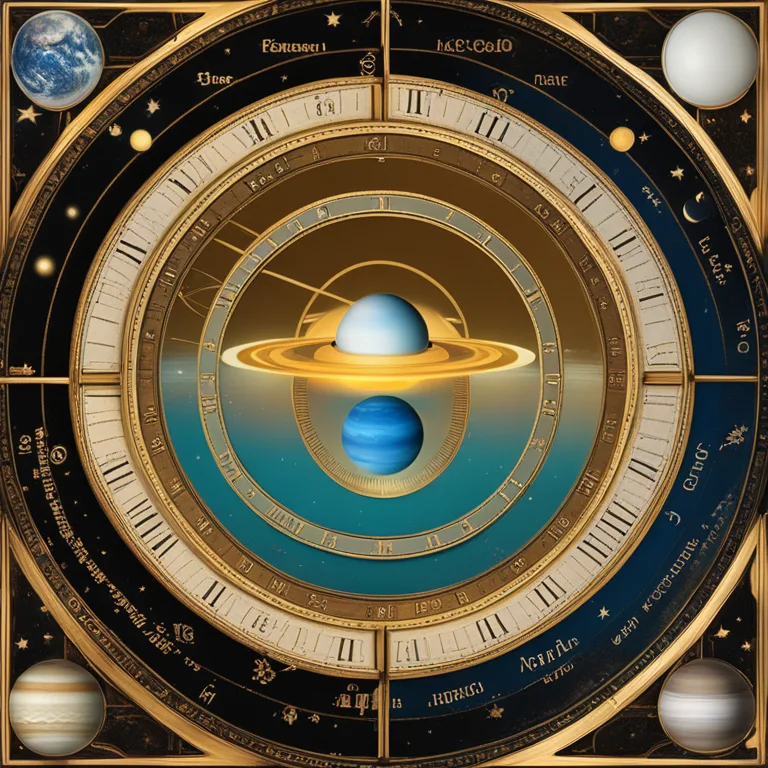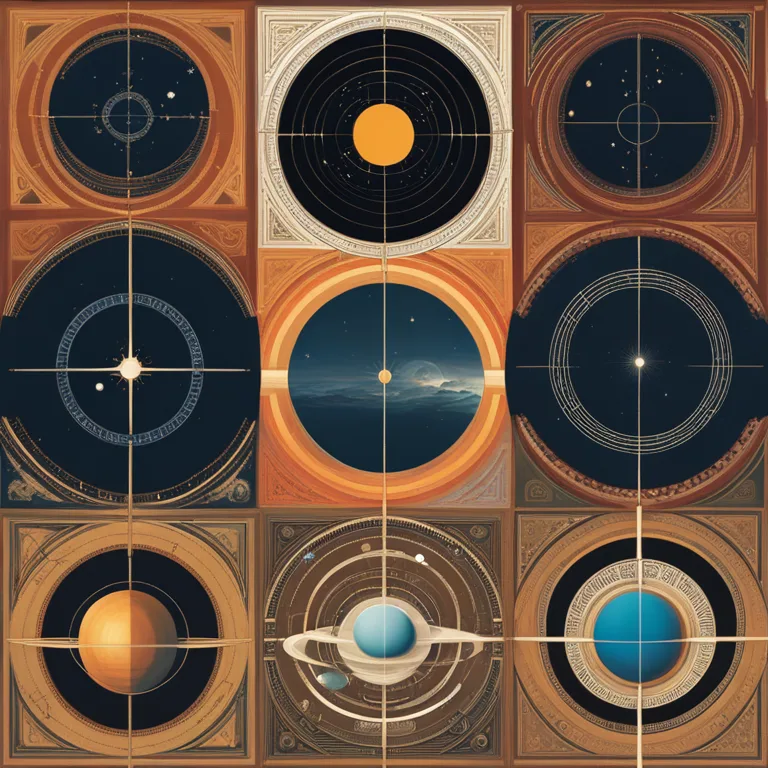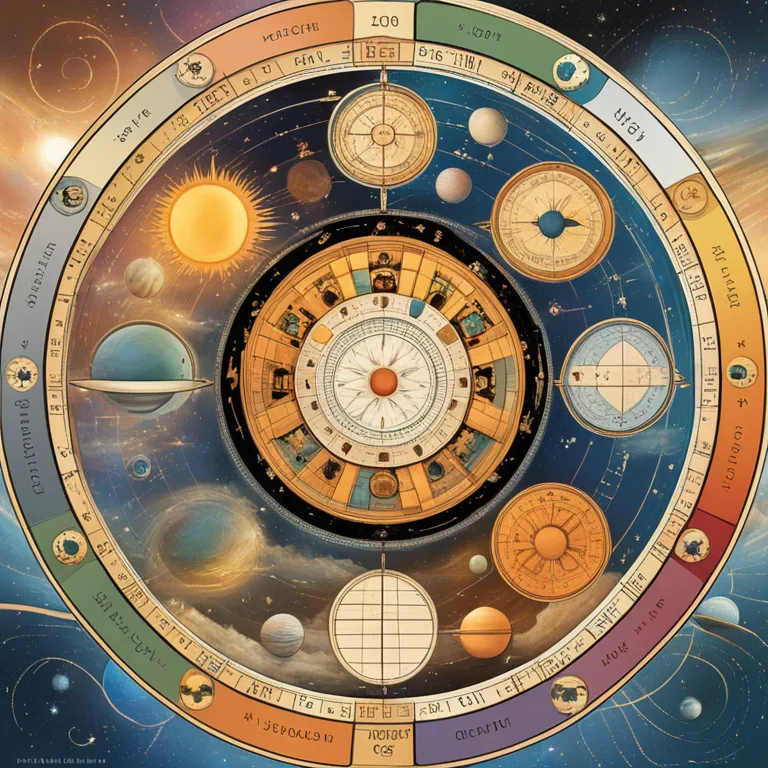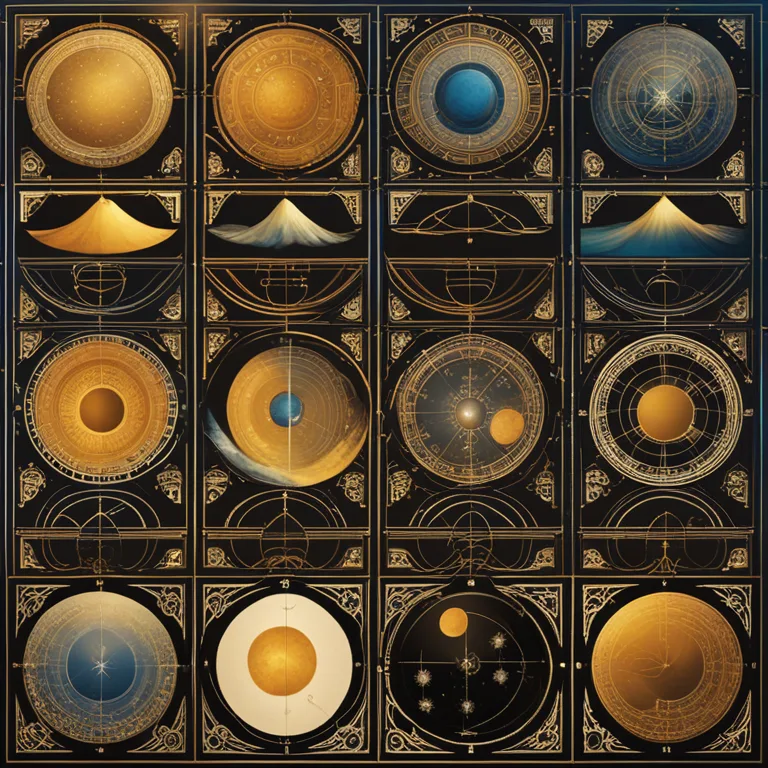
Interpreting Birth Chart Transits
The intricacies of birth chart transits reveal personal astrological influences. Unearth your cosmic forecast!
article by Priya Deshmukh
Birth Chart Basics
Before we delve into transits, it's key to understand the foundational structure of a personal birth chart—a celestial snapshot of where planets were at your exact moment of birth. This astrological blueprint is a guide to your personality, moods, and life path. Constructed based on your birth date, time, and place, a natal chart is divided into twelve sections or 'houses,' each representing different aspects of your life. The planetary placements in these houses form aspects, or angles, that describe your strengths, challenges, and growth areas.

What are Transits?
Transits in astrology refer to the continuous movement of the planets in the sky and how they interact with the positions of the planets in your natal chart over time. When a transiting planet forms a specific aspect with a natal planet, point, or house cusp, it activates the energies associated with that structure, often manifesting as events, feelings, or inner shifts. Transits are the key to understanding how the current astrological climate affects you personally, highlighting periods of transformation, opportunity, or challenge.

Major Versus Minor Transits
Astrologers categorize transits as major or minor based on their influence and duration. Major transits, which involve slower-moving planets like Jupiter, Saturn, Uranus, Neptune, and Pluto, can have a profound and lasting impact. These major transits suggest significant life themes being triggered and typically correspond with important life changes. Minor transits, on the other hand, concern faster-moving celestial bodies such as the Sun, Moon, Mercury, Venus, and Mars, and often indicate day-to-day fluctuations or short-term situations.

The Impact of Outer Planets
Outer planets, with their lengthy orbits, shape generations since they linger in each zodiac sign for several years. For instance, Saturn's transits can herald periods of hard work and responsibility, while Uranian transits may bring unexpected changes and awakenings. Transits of Neptune blur boundaries, provoking creativity or confusion, and Pluto's transformative power can provoke intense growth through challenge. While these transits are universal, how they affect you personally is determined by their interaction with your birth chart.

Personalizing Transit Readings
To personalize your transit reading, examine not only the planet that is transiting but also which house it's moving through in your personal chart and any aspects it is making to your natal planets. Different houses govern different areas of life, from identity to career to relationships, so a transit's effect can vary greatly depending on its location. For instance, Mars transiting your seventh house might prompt assertiveness in partnerships, while in the tenth house, it may energize career ambitions.
Preparation and Growth
Recognizing upcoming transits allows you to prepare and utilize the celestial energies effectively. A challenging transit from Saturn might prompt you to reinforce your foundations and accept responsibility, yielding long-term benefits. Conversely, a harmonious transit from Venus may offer a period of social grace and favorable relationships. Being aware of these astrological weather patterns gives you a chance to align your actions with planetary rhythms, facilitating personal growth and smoothing potential challenges.
Transits in Modern Contexts
Considering modern advancements and societal changes, interpreting transits in 2024 and beyond may involve a fresh context; for example, Uranus' transit through Taurus could correlate with innovations in currency, like the expansion of digital money, or Pluto's journey through Aquarius might reflect profound social transformations. Transits encourage us to evolve with the times, adapting to current themes while maintaining our individual paths, which are subtly guided by the stars.
Published: 12/22/2023
Modified: 12/22/2023
More predictions
Come back here soon to learn more about yourself and your future



